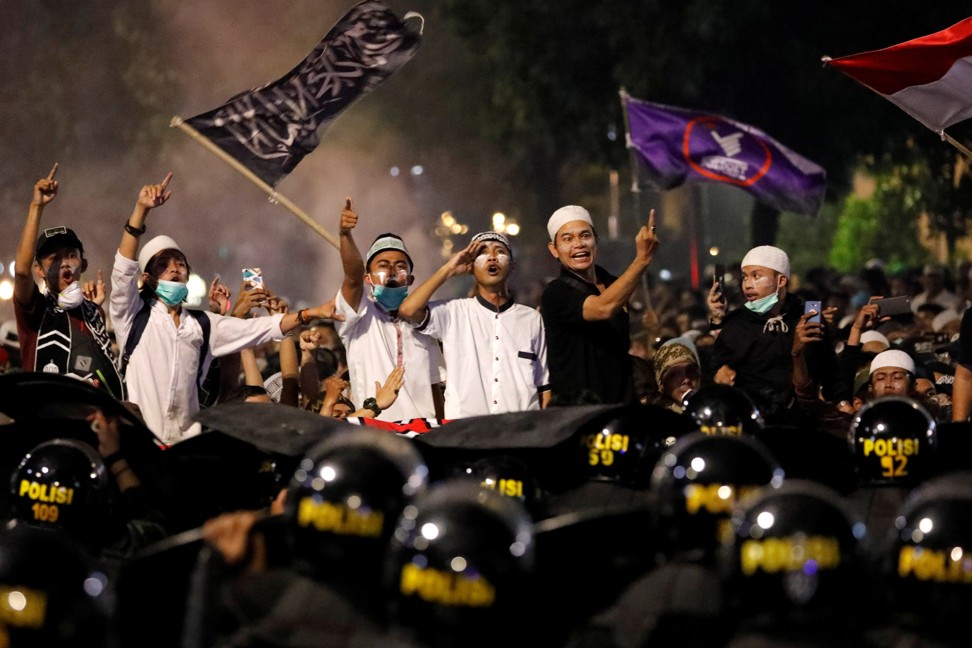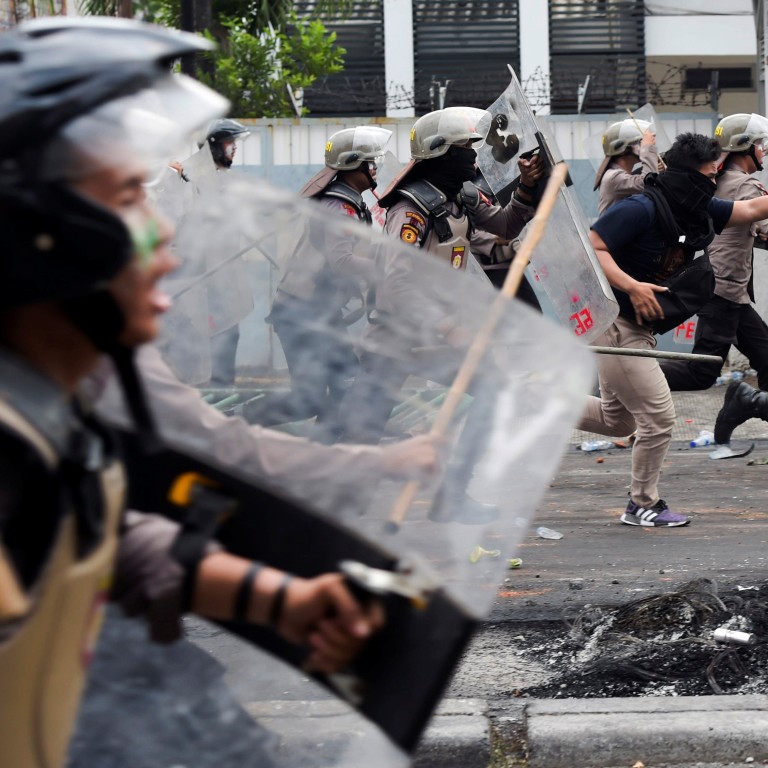
Chinese Indonesians in Jakarta fear attacks on the community, as anti-China hoaxes spread on social media
- After several people died in violent protests in Jakarta, messages spread on social media blaming the deaths on ‘police from China’
- The messages prompted the government to temporarily restrict social media functions on WhatsApp, Facebook and Instagram to halt spread of false information
The message was followed by photos of light-skinned masked police officers that came with the caption: “China has sent security forces to Indonesia disguised as foreign workers.”
In another photo, a man is pictured in a selfie that showed a light-skinned officer from Indonesia’s mobile brigade police (Brimob) in the background.
It accompanied the caption: “My friend, this Brimob cannot speak Indonesian.”
The anti-Chinese images and messages spread rapidly, leading the government on Wednesday to temporarily block or slow the sharing of photos and videos onto Facebook, Instagram and WhatsApp, to halt the spread of false information.
Communications Minister Rudiantara told reporters the restrictions were meant to slow visual content that could inflame “emotions”.
“We have never seen anything like it before in volume, severity, and coordination,” said Harry Sufehmi, co-founder of Mafindo, an Indonesian organisation fighting fake news.
Jakarta riots: six dead, social media blocked, anti-China hoaxes spread
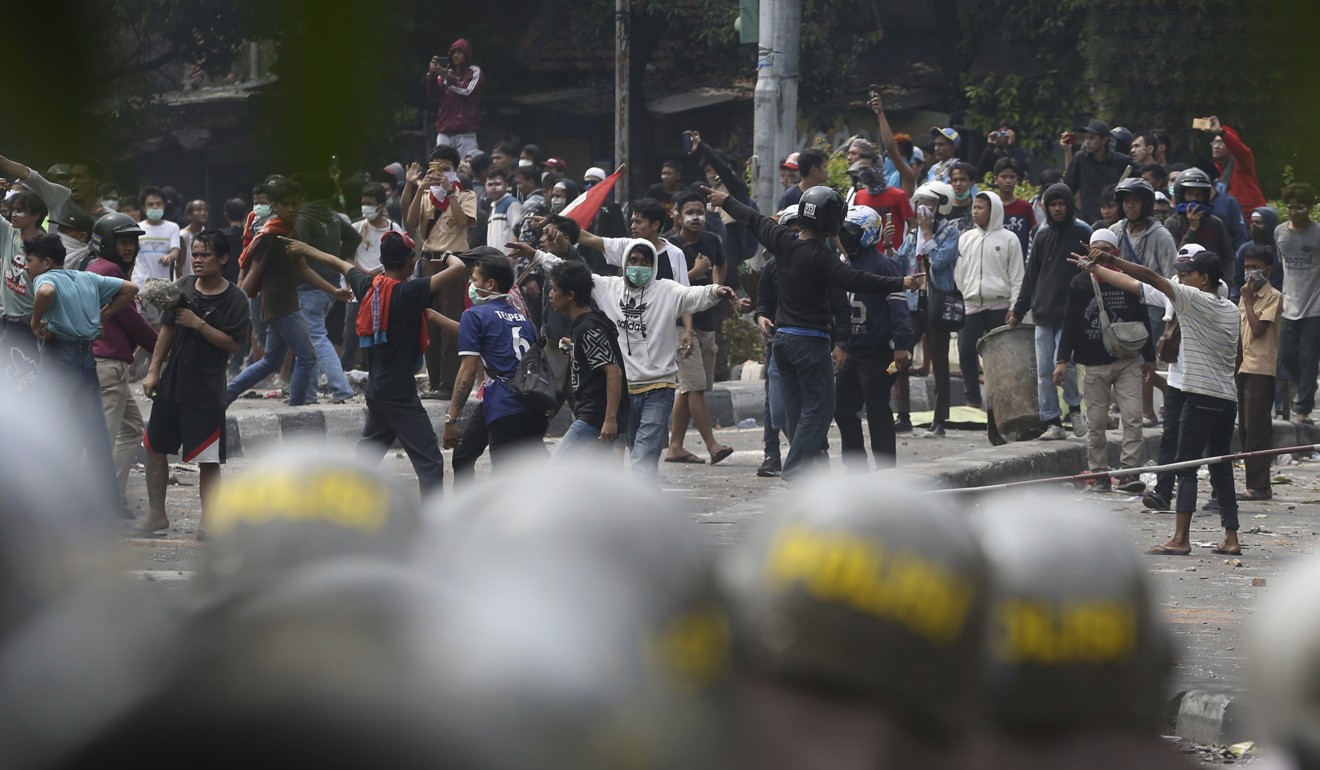
Abdul Gani, 33, was among the thousands of protesters in Jakarta who answered the call to demonstrate, travelling all the way from Makassar, South Sulawesi to oppose the election results.
Abdul said he views the call of the people as “jihad”, and believes the messages about “mainland Chinese police” were not a hoax.
“I decided to come using my own money because I believe that this is jihad,” Abdul said.
Why Prabowo insists he has won Indonesia’s presidential election
“I do believe that our brothers who fell were shot by Chinese police. We are defending our nation, to prevent it from falling to chaos, poverty and being exploited by foreign power.
“We have proof to show it’s not a hoax. How could they [be] Indonesian, if they can’t speak in our language? They [people from China] are always taking advantage of our pain. History shows us how they benefited all those years under Suharto and now under Jokowi.”
Abdul accused Jokowi of selling out the country to China, insisting: “He went to China on many occasions. His ‘big boss’ is over there and not us, the Indonesian people.”
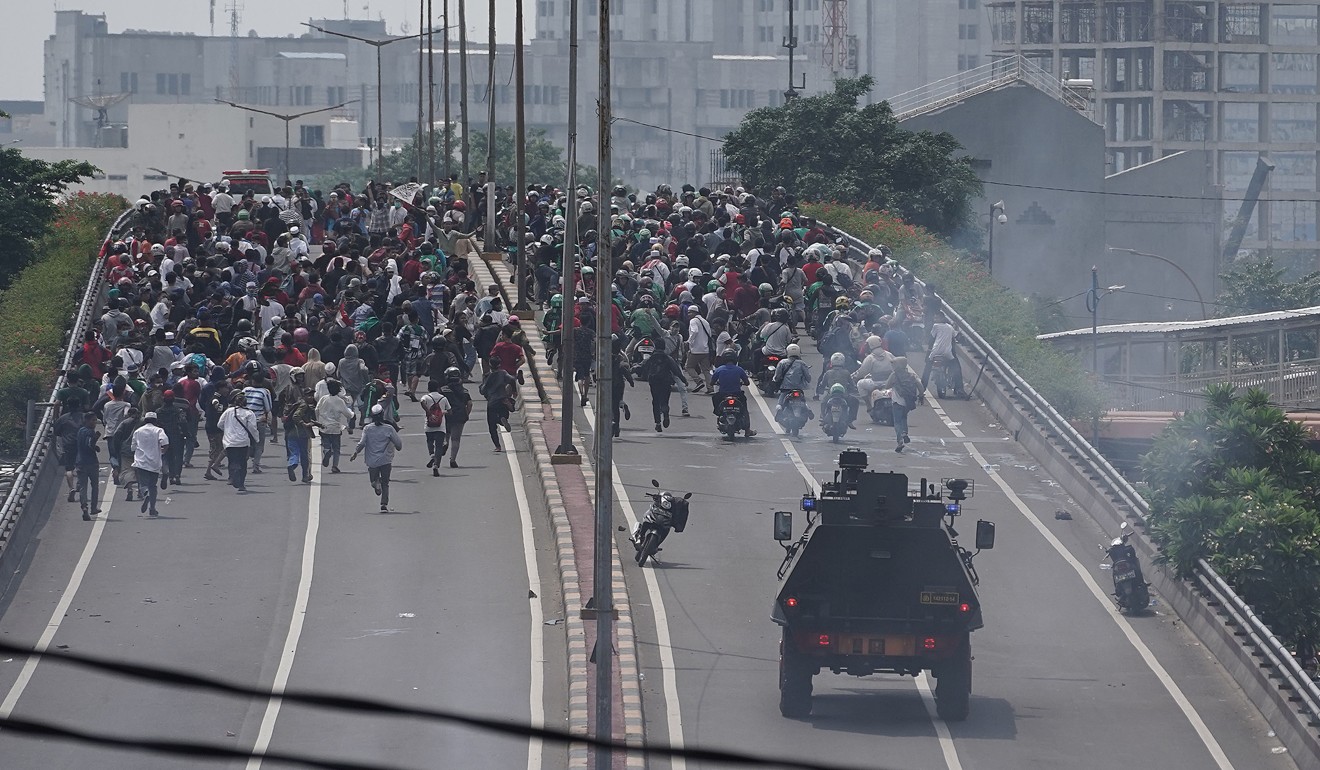
Ethnic Chinese who fled Indonesia for Taiwan remember the deadly 1998 riots
“It seems like the May 1998 riots. The difference [today] is that the security agencies are active now, not at that time [when] they allowed the [riots] to happened as the [then] leaders were fighting for survival,” a Chinese Indonesian man said.
“Every time there is violence or riots, the Indonesia Chinese fear being targeted. It is a nightmare.”
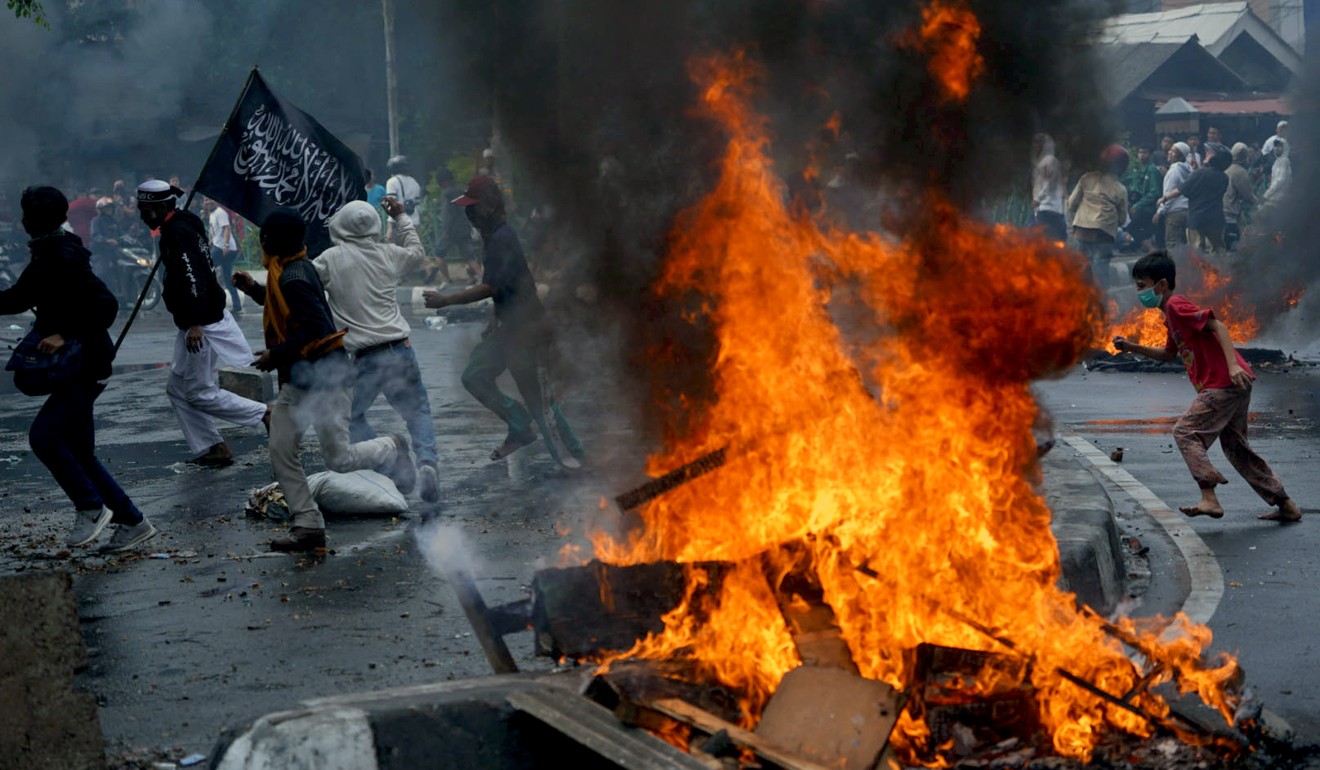
Human Rights Watch believes the hoaxes were created to target ethnic Chinese citizens and businesses in Indonesia.
“These groups, including Prabowo and many of his advisers, have a dark reputation of using ethnic and religious sentiment, including anti-Chinese racism, in mobilising people to get power,” said Andreas Harsono, Indonesian researcher for Human Rights Watch. “They did it in Java in 1998 with the anti-Chinese riots and they are trying to do it again today.
Indonesia’s disputed election stirs dormant terrorist sleeper cells
“Although it is not that easy [to provoke anti-Chinese sentiment] in some other parts of Indonesia, it works in Jakarta. The root of the problem is that Indonesia has centuries of racism, discrimination against ethnic Chinese, starting since the Dutch period with the 1740 Batavia massacres. It happened again on a wide scale in 1945-46, in 1965-68, and in 1998.
“This is the unfinished business from the Suharto era with gross human rights violation and impunity.”
Additional reporting by Reuters


